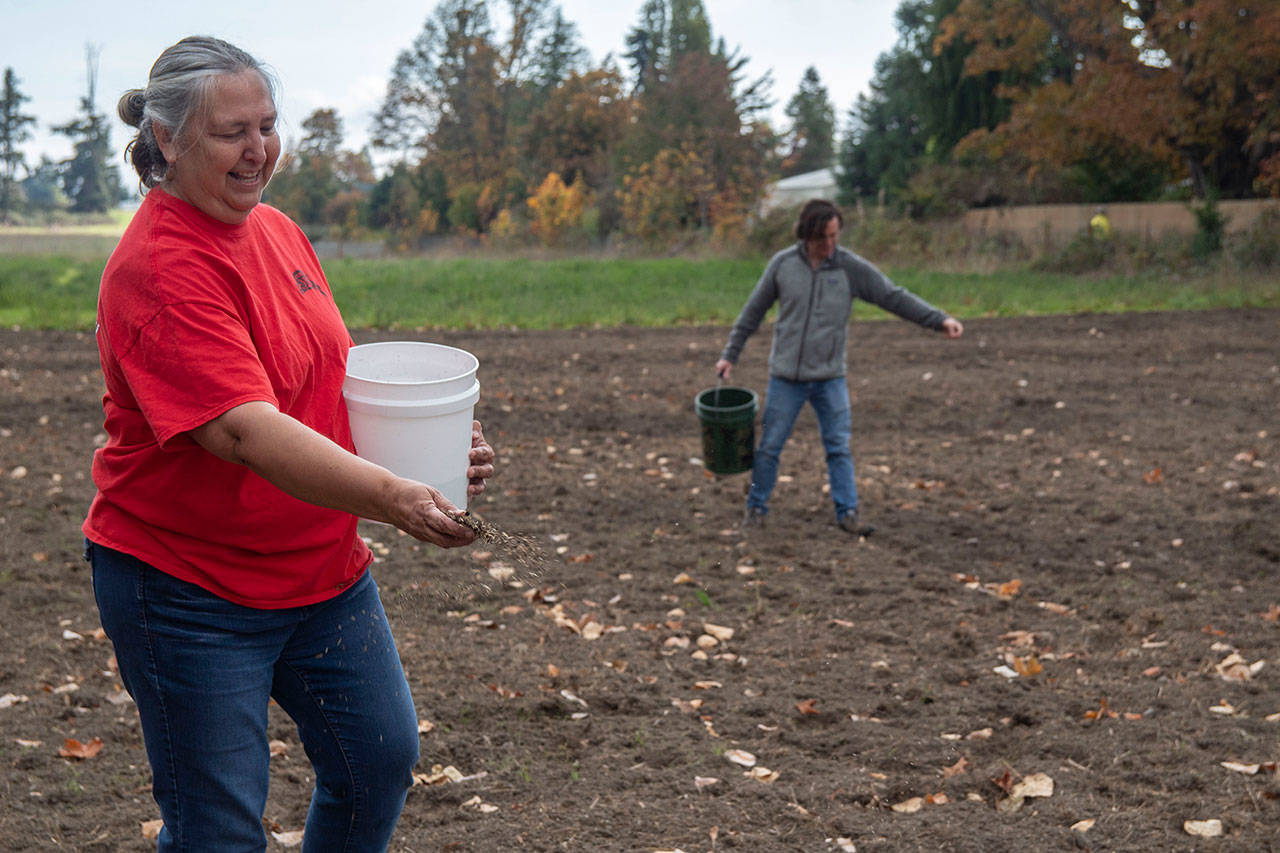By Tiffany Royal
Northwest Indian Fisheries Commission
SEQUIM — The open grassland behind the Audubon Dungeness River Center is helping Lisa Barrell’s dream become a reality.
The Jamestown S’Klallam Tribe’s Traditional Foods Project manager always has wanted a working prairieland where the tribe could grow and harvest traditional plants and native grasses to be used for cooking, medicine and art.
“I am grateful to be walking the same lands our ancestors walked, planting the seeds and bulbs of plants our ancestors gathered for foods and medicines,” Barrell said.
“Through our efforts, we are welcoming our traditional foods home for our health and to honor our ancestors. When we harvest our first foods, we will nourish our mind, body and spirit as our ancestors did.”
When the tribe purchased about 5 acres of land adjacent to the river center in 2016, it seemed like the right place and time to do it.
Mackenzie Grinnell, tribal member and program assistant, is leading the effort to turn 1 1/2 acres of the parcel from grass to usable soil.
Prairies are a “cultural ecosystem” that the tribes have used since time immemorial, Grinnell said. Harvesting from prairies helps restore the land so it can keep producing while keeping the soil healthy. It also was common for tribes to burn prairies to help new growth of native plants.
The land was tilled and covered with garden plastic to kill the weeds in August. Grinnell and Barrell gathered tribal members, friends and colleagues to seed the area and cover with hay in October. They planted wildflowers such as lupine and goldenrod, as well as camas bulbs, a traditional food.
“It will also be a place to do cultural activities, such as elders teaching others how to dig camas, or have younger tribal members dig camas for them,” Grinnell said. “It will be a great place to practice our culture.”
It will be a good place for education and outreach with its proximity to the river center building, and next to the highly traveled Olympic Discovery Trail, where cyclists and walkers have been stopping to ask questions, Grinnell said.
Jocylen Elofson, a 10th-grade summer intern, spent her time learning about and planning what traditional vegetation would be planted.
“We want to teach people about the importance of why we need prairies because before everything that happened today – development, farms and trails – this area was filled with prairies that were used by the tribe,” she said.
“If we don’t have prairies, we don’t have medicine or food or cultural resources, as well as less food for native animals.”
________
This article originally appeared in Northwest Treaty Tribes. See www.nwtreatytribes.org.
Tiffany Royal is Information officer for Northwest Indian Fisheries Commission–Hood Canal/Strait of Juan de Fuca.

